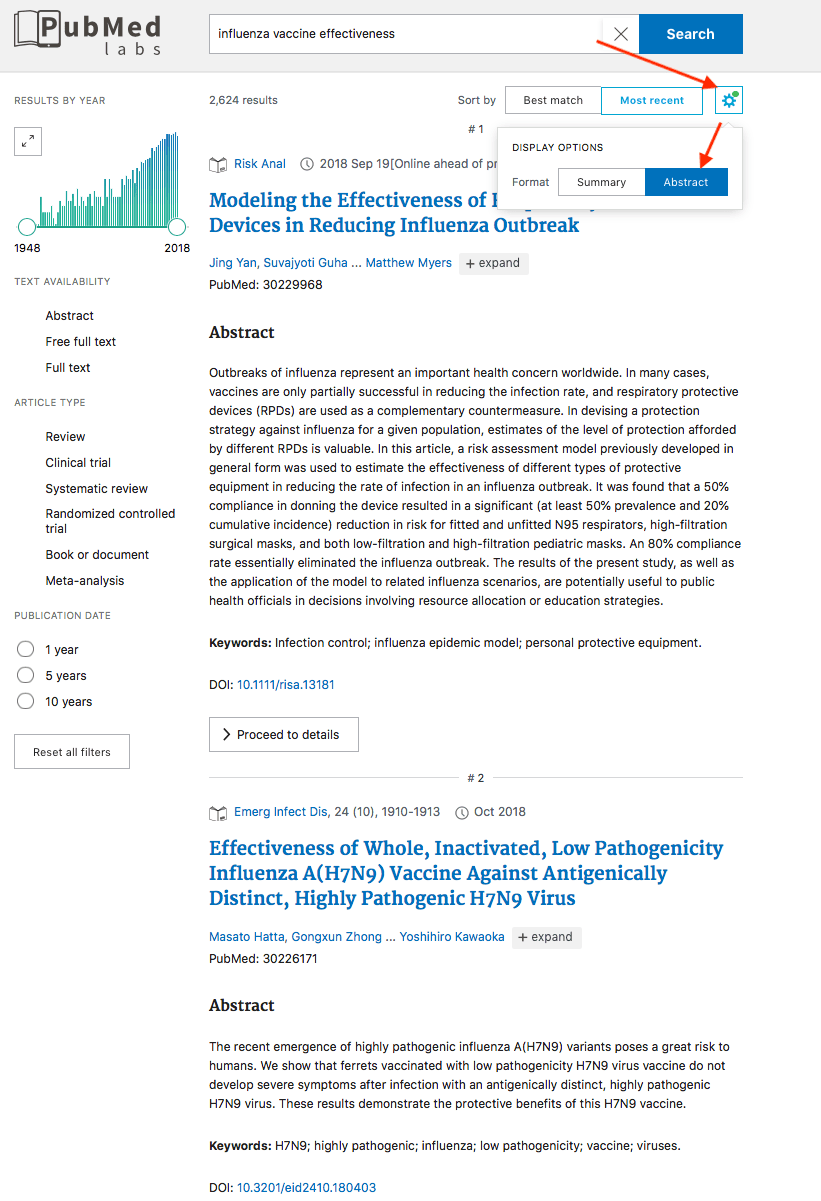NLM needs your input. We are experimenting with a new PubMed search algorithm, as well as a modern, mobile-first user interface, and want to know what you think. You can try out these experimental elements at PubMed Labs, a website we created for the very purpose of giving potential new PubMed features a test drive and gathering user opinions.
Please note that PubMed Labs includes only a limited set of features at this time and not the full set of PubMed tools. The absence of a feature or tool on PubMed Labs does not mean we plan to eliminate it from PubMed; it simply means we are not testing it now!
The key elements we are testing are:

- A new search algorithm for ranking (ordering) the best matches to your query
Based on analysis of data obtained from anonymous PubMed search logs, we have developed a new algorithm that we believe does a much better job of sorting search results by their relevance, or “best match,” to your query. This new algorithm incorporates machine learning to re-rank the top articles returned.
We were so excited by results with this algorithm that we already implemented it in PubMed, but it is still experimental and we would very much appreciate hearing what you think. Part of our test in PubMed Labs is having best match be the default sort, instead of PubMed’s default of sorting by most recent articles. If you find that you prefer to sort by the most recent articles instead, it takes only a simple click of a button to do so.
Interested in specifics about the new algorithm? You can read more in this NLM Technical Bulletin.
Continue reading “Try Our New, Experimental PubMed Search and User Interface in PubMed Labs” →









